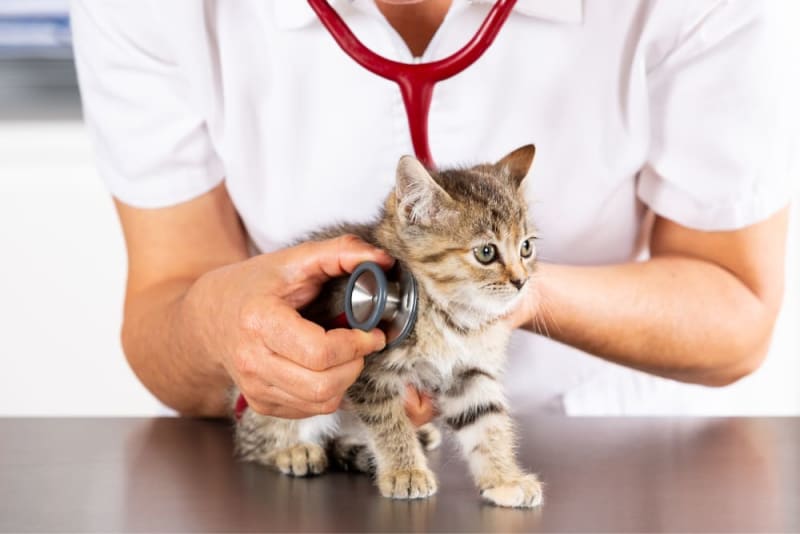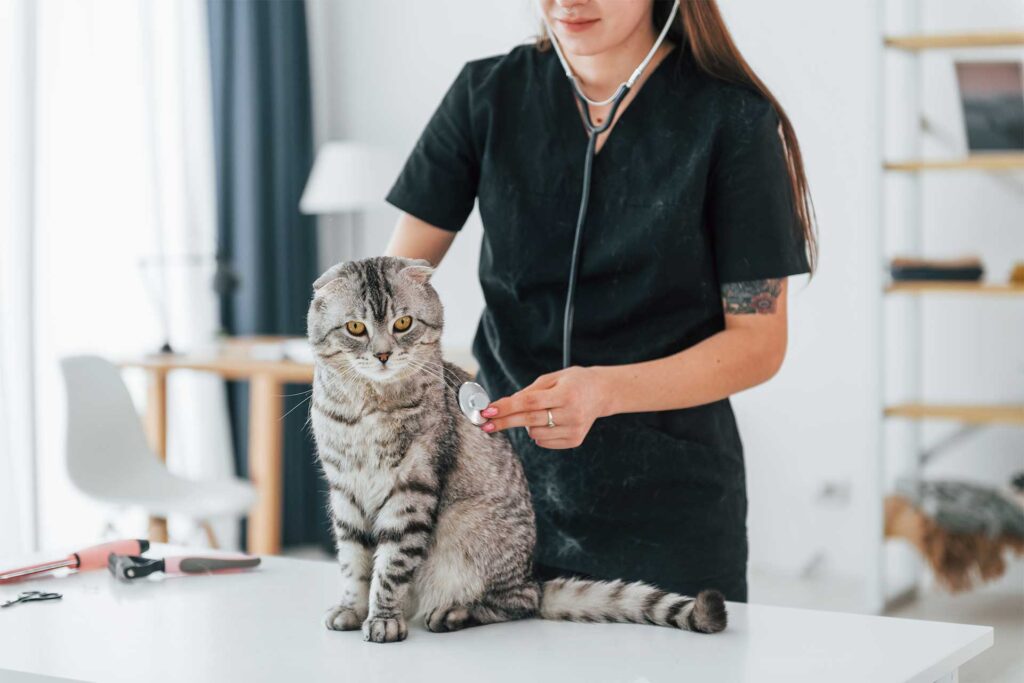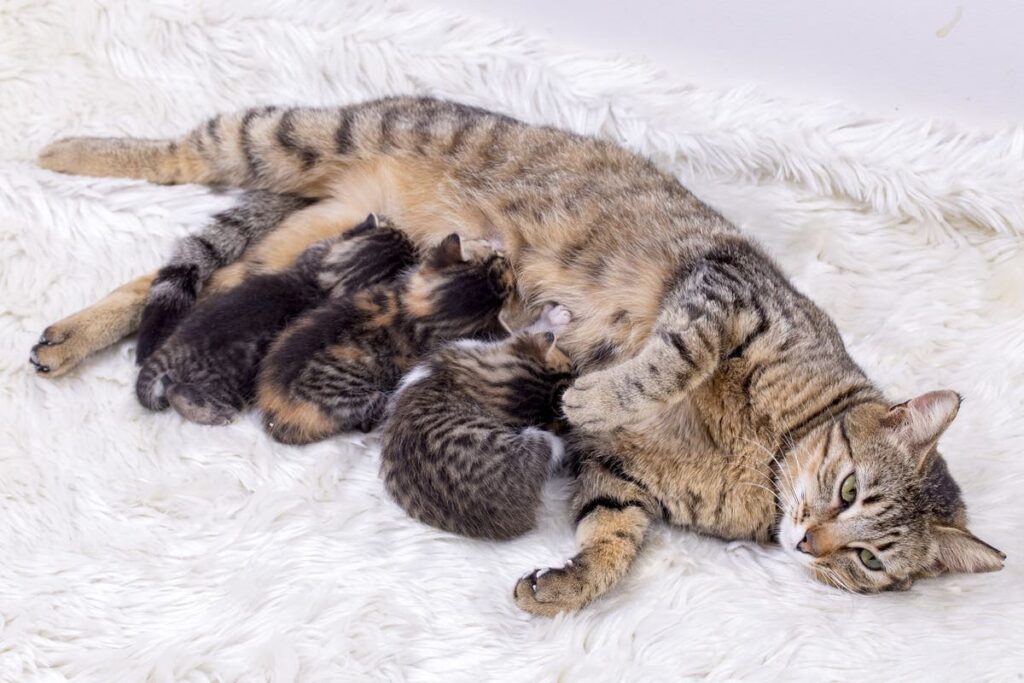Owning a cat is a rewarding experience, but understanding and meeting your feline friend’s health needs can sometimes be challenging. In this comprehensive guide, we will delve into various aspects of cat health, providing you with the knowledge you need to ensure your cat lives a long, happy, and healthy life.
General Health

A cat’s general health is a broad term encompassing various aspects of their wellbeing. Feline wellness involves regular monitoring and addressing any changes in behavior, appetite, or physical condition. Regular vet visits are crucial to catch any potential issues early and to keep up with necessary vaccinations and check-ups.
Nutrition
Cat diet plays a significant role in overall health. Feline nutrition must be balanced and rich in essential nutrients to support various bodily functions. Providing high-quality food and understanding your cat’s dietary needs can prevent many health problems. Consult with your vet to choose the right food and portion sizes, and ensure your kitty gets the necessary vitamins and minerals.
Common Illnesses
Understanding common feline diseases is vital for early detection and treatment. Conditions such as upper respiratory infections, feline leukemia, and urinary tract infections can be serious if not treated promptly. Familiarize yourself with the symptoms and seek veterinary care if you notice anything unusual.
Preventative Care
Preventative care includes cat vaccinations and regular health screenings. Vaccinations protect against various illnesses and are crucial for maintaining your cat’s health. Discuss with your vet about the appropriate vaccination schedule for your cat.

Symptoms
Recognizing cat symptoms early can make a significant difference in treatment outcomes. Watch for changes in eating habits, litter box usage, grooming behavior, and energy levels. Subtle signs like increased thirst, unusual lethargy, or changes in weight can indicate underlying health issues.
Behavior
Feline behavior is a window into your cat’s health and happiness. Cats exhibit various behaviors, from playful and curious to aloof and independent. Understanding these behaviors helps in identifying any changes that might indicate health problems or stress.
Grooming
Regular cat grooming is essential for maintaining your cat’s hygiene and health. This includes brushing their coat to prevent matting, cleaning their ears to prevent infections, and trimming their nails. Feline hygiene practices can prevent numerous health issues and keep your cat looking and feeling their best.
Veterinary Care
Regular vet visits are essential for feline medical checkups. These visits allow for early detection of potential health issues and provide an opportunity to discuss any concerns you may have about your cat’s health. Establish a good relationship with your vet to ensure your cat receives the best possible care.
Aging Cats
As cats age, their health needs change. Senior cat care involves more frequent vet visits, adjustments in diet, and monitoring for age-related illnesses such as arthritis and kidney disease. Aging feline health requires careful attention to ensure they continue to enjoy a good quality of life.

Exercise
Cat exercise is crucial for maintaining a healthy weight and preventing obesity. Engage your cat in regular feline physical activity through play and interactive toys. Kitty workouts not only keep your cat fit but also stimulate their mind and prevent boredom.
Mental Health
A cat’s mental wellbeing is just as important as their physical health. Feline stress and anxiety can manifest in various ways, such as changes in behavior or litter box habits. Provide a stimulating environment and consider using pheromone diffusers to help reduce stress.
Environment
Creating a cat-friendly home is essential for your pet’s health. Ensure your feline living space is safe and stimulating, with plenty of places to climb, hide, and play. Kitty habitat should include scratching posts, comfortable resting areas, and interactive toys.
Hydration
Adequate cat hydration is vital for preventing urinary and kidney problems. Ensure your cat always has access to fresh water. Some cats prefer running water, so consider investing in a cat water fountain to encourage more drinking.
Dental Health
Cat dental care is often overlooked but is crucial for overall health. Feline oral hygiene involves regular brushing and providing dental treats or toys. Poor dental health can lead to serious conditions, including heart and kidney disease.
Parasites
Cat parasites such as fleas, ticks, and worms can cause significant health issues. Regular feline flea control and kitty deworming are essential to keep these pests at bay. Use vet-recommended treatments to ensure your cat remains parasite-free.
Weight Management
Maintaining a healthy weight is crucial for your cat’s overall health. Cat weight control involves a balanced diet and regular exercise. Monitor your cat’s weight and adjust their food intake and activity level as needed to prevent obesity and related health problems.
Reproductive Health
Cat spaying/neutering is important for controlling the pet population and can also have health benefits. Discuss with your vet the best time to spay or neuter your cat. Understanding feline breeding health is essential for those involved in cat breeding.

Allergies
Cats can suffer from allergies just like humans. Cat allergies can be triggered by various factors, including food, pollen, and dust. Identify and minimize exposure to allergens to keep your cat comfortable and healthy.
Emergencies
Knowing how to handle cat emergency care is crucial for any pet owner. Familiarize yourself with basic feline first aid and keep a well-stocked pet first aid kit. Knowing what to do in urgent health situations can make a significant difference.
Skin and Coat
A healthy cat skin care routine includes regular grooming and addressing any skin issues promptly. Feline fur health is maintained through a balanced diet and proper hygiene. Monitor for signs of skin problems like rashes or excessive scratching.
Eyes and Ears
Regularly check your cat’s eyes and ears for any signs of infection or abnormalities. Cat eye health and feline ear care are vital for their overall wellbeing. Clean their ears gently and watch for any changes in vision or hearing.
Digestive Health
Cat digestion issues can range from mild to severe. Monitor your cat’s eating habits and stool consistency to detect any problems early. Feline gastrointestinal health can be supported with a balanced diet and regular vet check-ups.
Socialization
Cat social behavior varies widely. Some cats are very social, while others are more reserved. Understanding and supporting your cat’s social needs can enhance their quality of life. Provide opportunities for interaction and play to keep your cat engaged.
Sleep
Cats are known for their love of sleep. Understanding cat sleeping patterns can help you ensure they get enough rest. Provide a comfortable and quiet sleeping area where your cat feels safe and secure.
Indoor vs Outdoor
Deciding whether to keep your cat indoors or allow outdoor access is a significant decision. Indoor cat health can be easier to manage, but it requires creating a stimulating environment to prevent boredom. Outdoor feline risks include exposure to diseases and accidents. Find a balance that works for you and your cat.





















